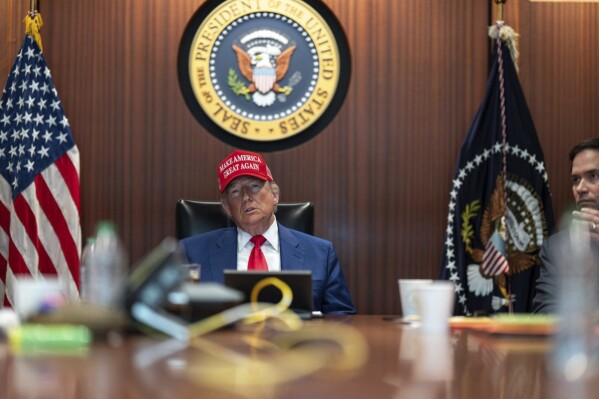Iran’s key nuclear enrichment sites Fordow, Natanz, and Isfahan were “completely and totally obliterated.”
- Black Insider

- Jun 21, 2025
- 2 min read
In a dramatic escalation of tensions in the Middle East, former President Donald Trump announced that U.S. forces, under his directive, carried out coordinated airstrikes on Iran’s nuclear facilities. Speaking at a late-night press conference from Washington, D.C., Trump declared the mission a “spectacular military success,” claiming that Iran’s key nuclear enrichment sites—Fordow, Natanz, and Isfahan—were “completely and totally obliterated.” The announcement sent shockwaves across the globe, reigniting debates over the use of military force without Congressional approval and raising alarms over the future of global stability.
Standing at the podium, Trump characterized the strike as a necessary move to prevent Iran from achieving nuclear weapons capability. “We will not let the Middle East’s bully arm itself with weapons of mass destruction,” he said, flanked by military officials. The former president added that the operation was carried out in partnership with Israeli forces, reinforcing what he called an “unbreakable alliance.” Trump warned Iran that continued aggression would result in “far greater and easier” strikes in the future, urging Tehran to “make peace now.”
The Pentagon followed up with a press briefing early Sunday morning, where Secretary of Defense Pete Hegseth and Joint Chiefs Chairman General Dan Caine provided operational details. They confirmed that B-2 bombers and Tomahawk missiles were deployed in the attack, which they claim succeeded in significantly degrading Iran’s nuclear infrastructure. However, the Department of Defense declined to elaborate on potential casualties or Iran’s immediate military response.
Back home, political reactions were divided and intense. While some Republican leaders praised the move as a strong demonstration of American power, others expressed concern over the lack of legislative oversight. Democratic leaders, including Representative Alexandria Ocasio-Cortez, denounced the strikes as unconstitutional and are now calling for renewed impeachment proceedings against Trump, accusing him of bypassing Congress and risking a full-blown war. Meanwhile, progressive voices within the Black political community have expressed outrage over what they see as a reckless decision that disproportionately endangers American soldiers—many of whom are young Black and Brown servicemembers.
Globally, the reaction was swift. Israeli Prime Minister Benjamin Netanyahu praised the strike, calling it a “historic action that restores balance in the region.” United Nations Secretary-General António Guterres condemned the airstrikes as an unnecessary provocation and urged all parties to return to diplomatic negotiations. Countries such as China, Russia, and Venezuela have also spoken out against the U.S. actions, accusing Trump of violating international law and destabilizing an already fragile region.
As tensions climb, The Black Insider will continue monitoring developments, especially the implications for military families, international alliances, and the broader Black community both at home and abroad. With retaliation from Iran a looming possibility, the world waits—and watches—what happens next.








Comments